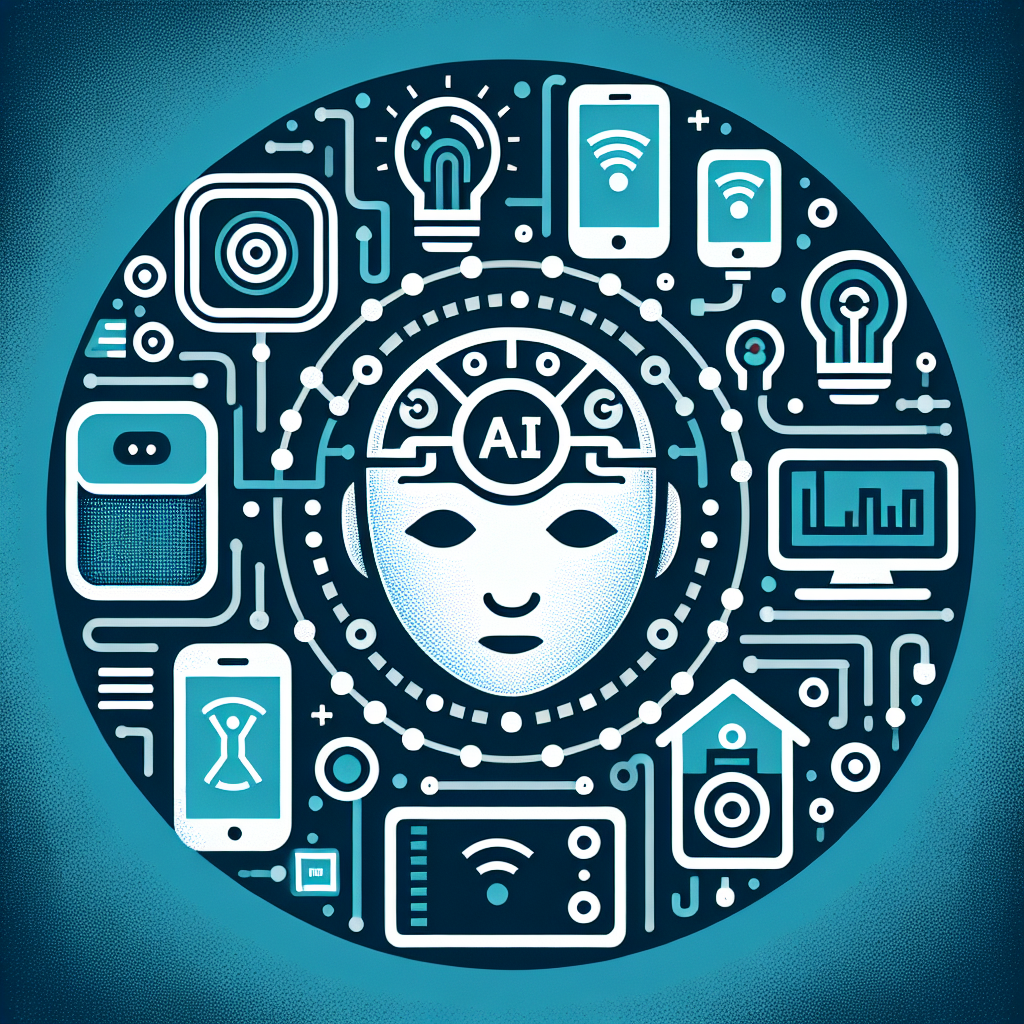The rapid advancement of artificial intelligence (AI) technology has had a significant impact on various industries, including the home automation sector. AI tools have revolutionized the way we interact with our smart homes, making them more efficient, convenient, and secure. In this article, we will explore how AI tools are improving home automation and how they can enhance the overall living experience.
One of the primary benefits of AI tools in home automation is their ability to learn and adapt to the user’s preferences. Through machine learning algorithms, AI-powered devices can analyze patterns in the user’s behavior and adjust settings accordingly. For example, a smart thermostat equipped with AI technology can learn when the occupants are typically at home and adjust the temperature settings accordingly, leading to energy savings and increased comfort.
Another key advantage of AI tools in home automation is their ability to automate routine tasks. AI-powered devices can be programmed to perform a wide range of tasks, such as turning on lights, adjusting the blinds, or playing music, based on predefined triggers or schedules. This automation not only saves time and effort but also enhances the overall convenience and comfort of the home.
Moreover, AI tools can enhance home security by providing advanced monitoring and surveillance capabilities. AI-powered security cameras can detect and alert the user of suspicious activities, such as unauthorized entry or unusual movements, in real-time. Additionally, AI algorithms can analyze data from multiple sensors and devices to identify potential security threats and take appropriate actions to mitigate risks.
Furthermore, AI tools can improve energy efficiency in smart homes by optimizing energy consumption based on real-time data and user preferences. For example, AI-powered smart meters can analyze energy usage patterns and suggest ways to reduce consumption, such as adjusting the thermostat settings or turning off appliances when not in use. This not only helps in reducing energy bills but also contributes to a more sustainable and eco-friendly living environment.
In addition to improving efficiency and convenience, AI tools can also enhance the overall user experience by providing personalized recommendations and suggestions. For instance, AI-powered virtual assistants can analyze the user’s preferences and habits to offer tailored recommendations for entertainment, shopping, or even meal planning. This level of personalization not only enhances the user experience but also fosters a deeper connection between the user and the smart home ecosystem.
Overall, AI tools have the potential to transform the way we interact with our homes, making them more intelligent, efficient, and secure. By leveraging the power of AI technology, homeowners can enjoy a more personalized and convenient living experience while also reaping the benefits of energy savings and enhanced security.
FAQs
Q: What are some popular AI tools for home automation?
A: Some popular AI tools for home automation include virtual assistants like Amazon Alexa and Google Assistant, smart thermostats like Nest Learning Thermostat, and security cameras like Ring Video Doorbell.
Q: How can AI tools improve energy efficiency in smart homes?
A: AI tools can improve energy efficiency in smart homes by optimizing energy consumption based on real-time data and user preferences. For example, smart meters equipped with AI technology can analyze energy usage patterns and suggest ways to reduce consumption, such as adjusting the thermostat settings or turning off appliances when not in use.
Q: Are AI-powered devices secure?
A: AI-powered devices are designed with robust security features to protect user data and privacy. However, it is essential to follow best practices for securing smart home devices, such as using strong passwords, keeping software up to date, and enabling two-factor authentication.
Q: How can AI tools enhance home security?
A: AI tools can enhance home security by providing advanced monitoring and surveillance capabilities. AI-powered security cameras can detect and alert the user of suspicious activities, such as unauthorized entry or unusual movements, in real-time. Additionally, AI algorithms can analyze data from multiple sensors and devices to identify potential security threats and take appropriate actions to mitigate risks.
Q: How do AI-powered virtual assistants work in home automation?
A: AI-powered virtual assistants like Amazon Alexa and Google Assistant work by using natural language processing (NLP) algorithms to understand and respond to voice commands. These virtual assistants can control smart home devices, provide personalized recommendations, and assist with various tasks to enhance the overall user experience in home automation.

